Read our latest magazine articles
To close the academic year and start the summer off right, we have listed all our magazine articles from January to July 2025. So you can read them again at your leisure during the holidays. In each article, a UG researcher talks about their field.
The darker side of tourism
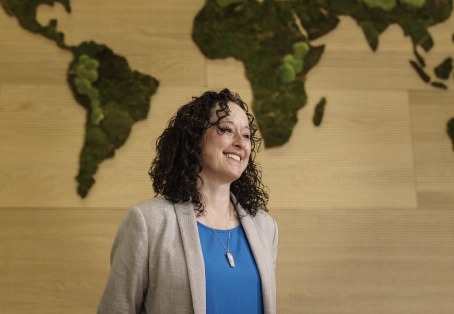
Once upon a time, her passion for travel and spending holidays abroad led Meghan Muldoon to study tourism. However, due to her research, she also became aware of the darker sides of this pastime. That is the reason why Muldoon, assistant professor of Sustainable Tourism and Society, wants to shed some light on the harmful effects of tourism on both the environment and the people in the host country. Her message is: enjoy it, but make conscious choices as a tourist. Read more
‘Give seals space’
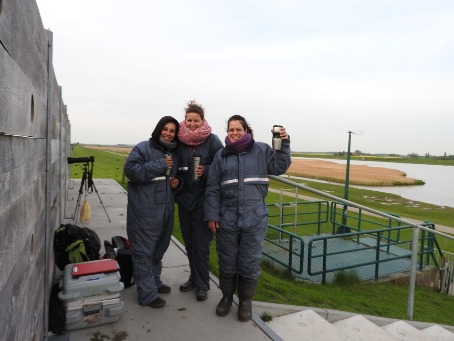
The Wadden Sea is constantly changing. Native animals need to be able to adapt in order to thrive in an environment that is shaped by the tides. However, the area is also subject to human interference. The new Wadden Sea World Heritage Centre, (Werelderfgoedcentrum Waddenzee, WEC) facilitates research and discussions on these various influences. By conducting research on seals in the area, PhD students Margarita Méndez-Aróstegui and Beatriz Rapado-Tamarit are able to shed new light on these topics. They view the seal as the symbol of a healthy Wadden Sea region. Read more
The search for extraterrestrial life inspires and humbles us
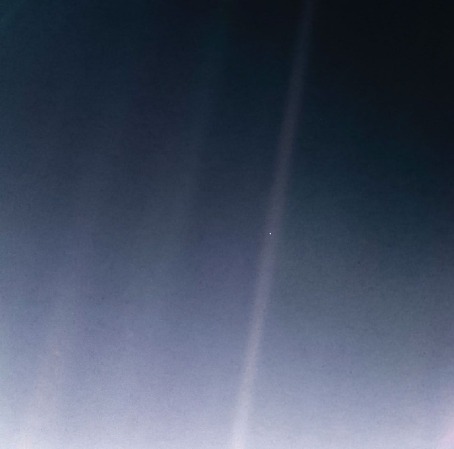
The photo on the side has become known as the Pale Blue Dot. It was taken in 1990 by NASA’s Voyager spacecraft from a distance of 6 billion kilometres from Earth. Our planet floats in an almost infinite void in the universe and, as far as we know, is the only planet on which life exists. Floris van der Tak, senior scientist at SRON and Professor of Astrochemistry in Groningen, is searching for life beyond our planet. Read more
The brain as tumble tower
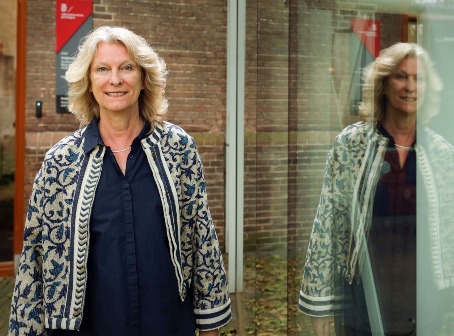
For decades, Monicque Lorist, Professor of Cognitive Neuropsychology, has been trying to unravel how the human brain works. What influences our thinking? What happens when we are tired, or when we age? ‘There‘s still so much we don’t know. Questions I enjoy finding the answers to.’ Read more
Sense of purpose in people affected by low literacy and poverty
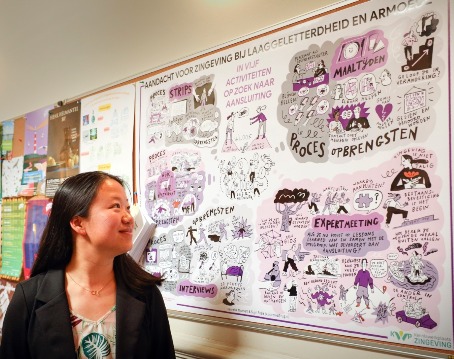
Anyone who takes to the streets at the crack of dawn may have already spotted it: the Salvation Army’s ontbijtfiets (breakfast bike) in Groningen. From around seven o’clock, a social worker and a volunteer cycle through the city to reach out to rough sleepers, bringing them coffee, tea, and sandwiches. Sujin Rosie, PhD student at the Faculty of Religion, Culture and Society at the University of Groningen, cycles along to help and observe: what actually happens during these encounters, and how do people on the street and those on the ontbijtfiets connect with each other? Read more
Flexible and fanatical: Students roll up their sleeves for self-driving car
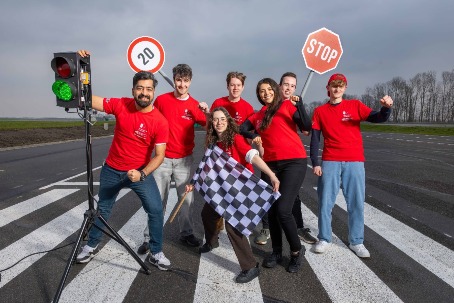
A brand-new team from the University of the North is gearing up again for the 2025 edition of the RDW Self Driving Challenge (SDC). In the team called 'Lord of the Roads', students from educational institutions Noorderpoort, Hanze University of Applied Sciences (Hanze UAS), and the University of Groningen (UG) are working together to build a self-driving car. Team leader Laura María Quiros shares more about their joint efforts. Read more
An adventure in the brain
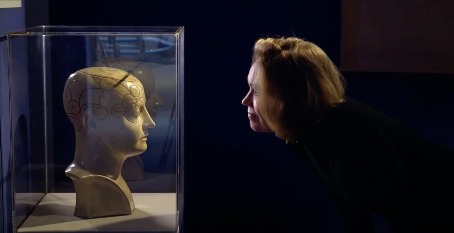
What is the gut-brain connection, how was it discovered that the brain does what it does, and how do games motivate you to perform better? In the exhibition Brainstorm, Iris Sommer and two other brain researchers from Groningen explain this and more. Read more
From oyster mushroom to overalls
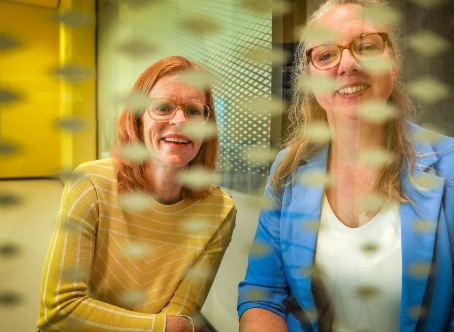
A T-shirt made from fungi — or mycelium textile, to be more exact. It would be a great step toward a more sustainable fashion industry. At least it could be if the material could be developed in such a way that it can be used for clothing and if consumers accept it and want to wear it. Marleen Kamperman, Professor of Polymer Science, and Marijke Leliveld, associate professor of Consumer Ethics, have combined their expertise and are working on both questions at the same time. Read more
European security: opportunity and threat to democracy
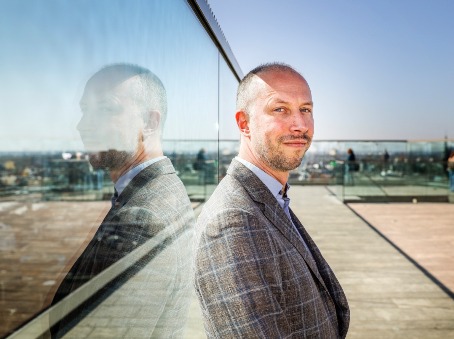
How strong is our democracy? This will be determined by what is currently happening on the world stage, argues Pieter de Wilde, Professor of European Politics & Society at the University of Groningen. At the moment, parties in Europe are frantically looking for their views on the defensibility of their countries—a topic that hardly mattered until now. Who are political allies? Who are opponents? Global changes are going to transform current political divisions, including in The Hague. Read more
Overcoming grid congestion: ‘Making better use of what we already have’
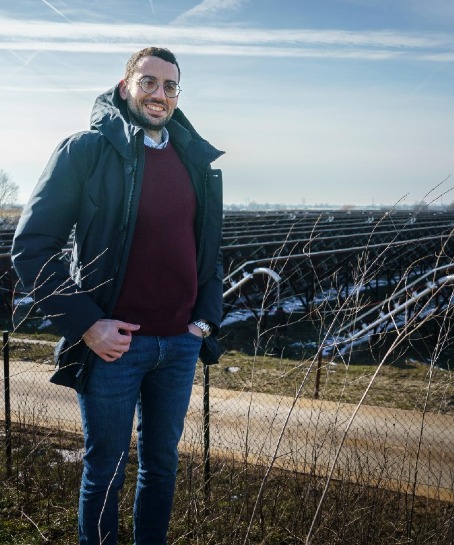
Grid congestion poses a major problem. There is little to no capacity to connect new households and businesses to the power grid and it risks halting the energy transition. Michele Cucuzzella, Associate Professor of Energy Systems & Nonlinear Control, researches how we can use our current energy infrastructure more efficiently. Recently, he also joined the Jantina Tammes School and the Wubbo Ockels School, where he focuses on the ‘twin transition’ — the interplay between the digital and energy transitions. Read more
Elitism as threatening as populism
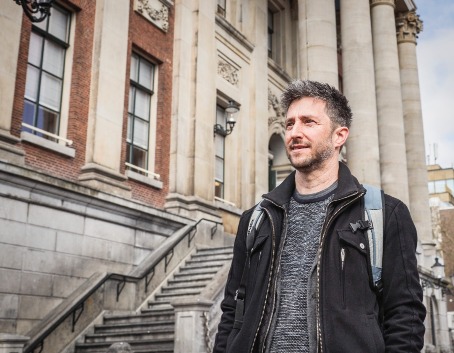
In the case of racism or sexism, people are judged by their skin colour or gender and considered different and inferior based on that. But there is also a phenomenon called educationism: highly educated people looking down on those who are less educated. Social psychologist Toon Kuppens draws attention to this form of discrimination: ‘It’s damaging to those affected and to society as a whole.’ Read more
How do you shield yourself from Big Tech's power?
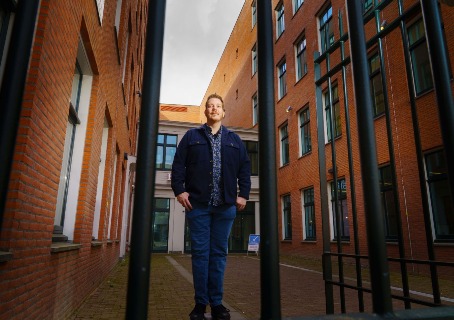
How can we all become less dependent on Big Tech? A topical and urgent question that is also arising within the University. Recently, a petition by a group of staff members made the rounds that called for the University to break away from Google and Amazon. Peter van de Waerdt obtained his PhD in November last year on this very subject. The significant title of his thesis: Data is power. Read more
How to deal with the datafication of our society?
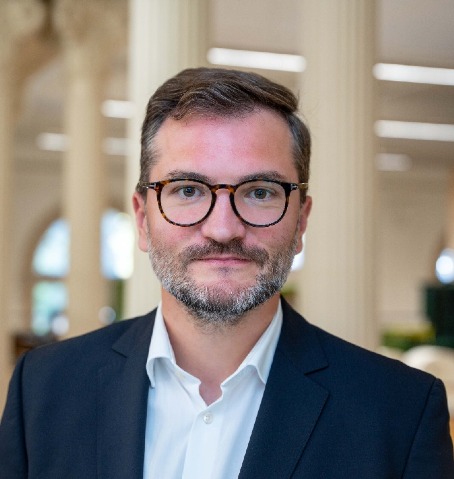
Our data usage is at an all-time high. But concerns regarding our online presence are on the rise. Who governs the spaces we access online and how do they do this? How can government regulations help manage the consequences of their decisions for the privacy and safety of internet users? These are central questions to the research topics of Oskar Gstrein, associate professor of Human Dignity in the Digital Age. Read more
Plastic recycling: how to best reuse carbon atoms
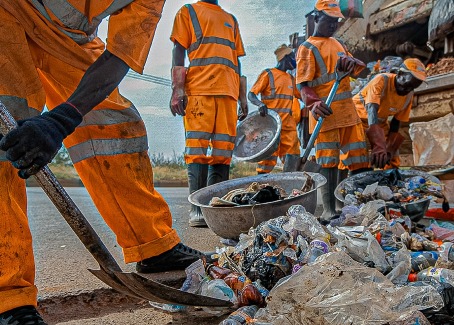
The amount of plastic waste is enormous: worldwide, some 350 million tons are discarded per year, i.e. over 40 kilograms per person per year. Scientists at the University of Groningen’s Faculty of Science and Engineering (FSE) are working on new ways to recycle plastic waste into new, high-quality products. This is the second of four articles on plastic research at FSE. Read more
'Diversity leads to better science'
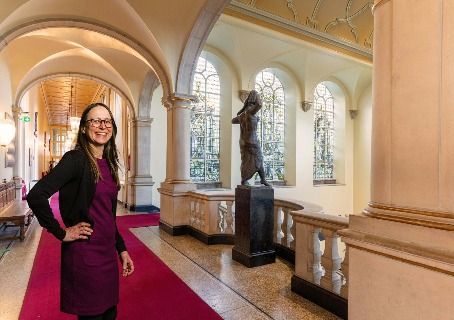
In addition to her biological research on ageing, Hannah Dugdale also studies disparities relating to diversity in science. Thanks to the latter, she is one of the two 2024 laureates of the Athena Award, an NWO prize for successful and inspiring female researchers who are role models for others. “Diversity in your research group actually improves the quality of the science.” Read more
Beyond 'Hey Siri': towards Inclusive Speech Technology
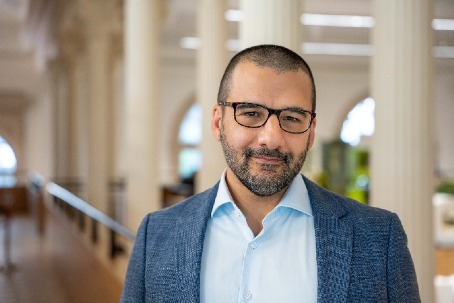
Many of us have encountered speech technology in one way or another. However, can you imagine a world where speech technology is not just about asking your smart speaker about the weather, but one where it gives a voice to those with speech disorders, helps support endangered languages, and understands sarcasm? This is the frontier that Matt Coler and his team are exploring at Campus Fryslân’s Master’s degree programme in Speech Technology. Read more
The riddle of the black-tailed godwits in Bangladesh
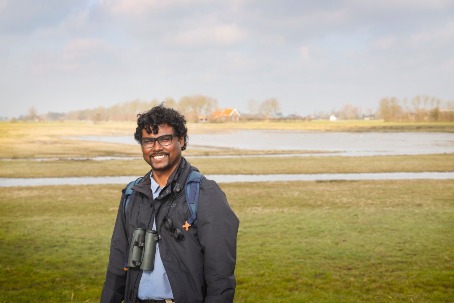
Every year, thousands of non-breeding black-tailed godwits can be found on the coast and in the freshwater wetlands of Bangladesh. Worldwide, four subspecies of black-tailed godwit have been identified depending on their different breeding grounds. But the question is, which of these four subspecies can be found in the wetlands of Bangladesh, and how do they migrate to and from Bangladesh? This is what Bangladeshi PhD student Delip Das is researching at Birdeyes in the University of Groningen. Read more
East Groningen: universal basic services must be up to standard
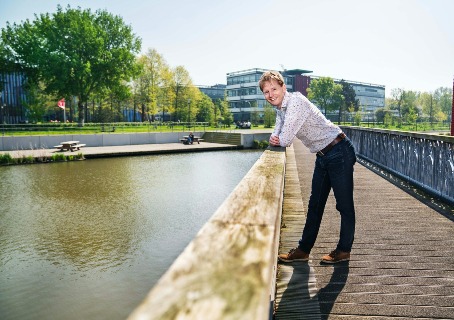
Economic geographer Sierdjan Koster has been closely following the developments in response to the report Every region counts, published in June 2023, in which three advisory councils of the national government concluded that regions in the Netherlands outside the Randstad are lagging behind. There’s an expressed intention to change that. But just how? Koster makes the case for long-term thinking and for bringing Groningen’s universal basic services up to standard. Read more
More than just metallic bikinis
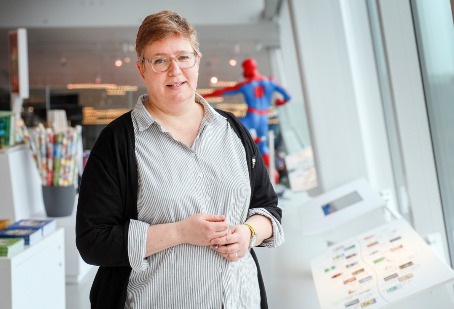
Barbara Postema’s room is filled with books. Although many may expect seeing books by Shakespeare or Chaucer on the shelves of an English teacher at the Faculty of Arts, they are actually stacked with comics, strip cartoons, and graphic novels such as Fun Home, Persepolis, and Watchmen. Classics too, but within the world of comics. Postema is a scholar in comics studies and she would be delighted to see both society and academia finally appreciate these books. Because comics are about more than just Gauls, Smurfs, and superheroes. In the run-up to International Women's Day, she argues that comics are certainly not just a ‘boy thing’. Read more
The influence of financial instruments on the lives of enslaved people
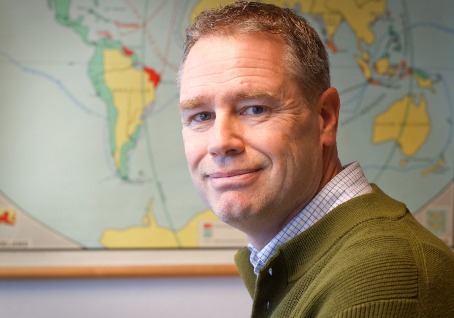
Some groups of enslaved people in the Dutch Caribbean colonies were particularly harmed by how sugar and coffee plantations were financed. The more debt financing was used, the larger were the adverse physical consequences for forced labourers. This is evident from the preliminary results of the NWO project ‘Collateral damage: The financial economics of slavery’, on which Abe de Jong is working. For this project, the Professor of Corporate Finance analysed thousands of archival records using modern economic models and insights. Read more
Can binaural beats help you to focus and relax? These researchers are trying to find out
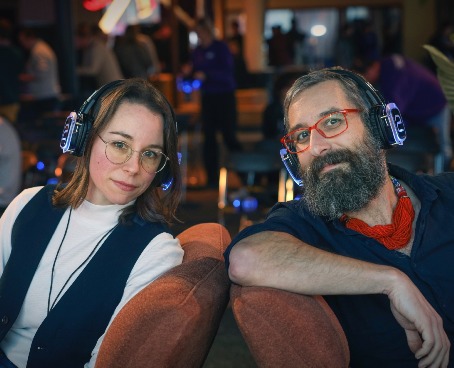
Reduce stress, improve concentration, increase intelligence: tens of thousands of videos on YouTube claim to offer all kinds of health benefits using so-called binaural beats. Is this claim really true? That is what researchers Kirsten van den Bosch and Tassos Sarampalis of the Faculty of Behavioural and Social Sciences are trying to find out. They received an XS grant from the Dutch Research Council to do so. Read more
Space for your disability
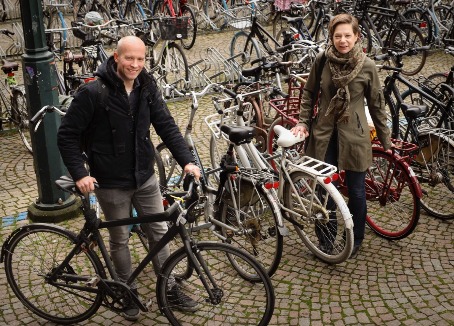
When it comes to collaborations between researchers from different faculties, the UG is at the top of its game. A prime example is the Disabled City project that researches how the mobility of people with a physical disability can be explored through obstacles and opportunities in the urban environment. This could include people with a spinal cord injury, amputation, or foot drop. This project impacts how we look at individual mobility, but also how spaces, and public spaces in particular, can be set up to be inclusive and hospitable to people with a mobility disability. By looking at such a problem from various perspectives, new points of view and solutions can be found. Read more
'To entice is okay, to mislead is not'
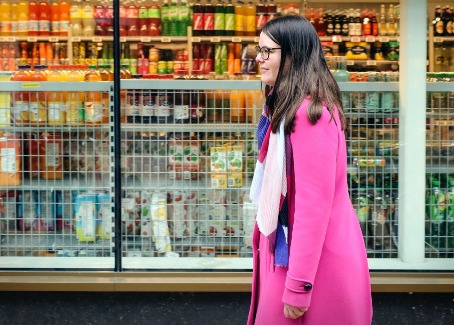
In the supermarket, there is a carton of ‘blackcurrant juice’. At least, that is what it is called and what the picture on the packaging suggests. The list of ingredients, however, states that the contents are mainly made of apples and grapes. Is this allowed without question? Are customers not being misled in this way? Lawyer Carien de Jager is engaged with these kinds of questions. ‘I study the dividing line between enticement and deception.’ Read more
Artistic ambassadors: making art as a research method
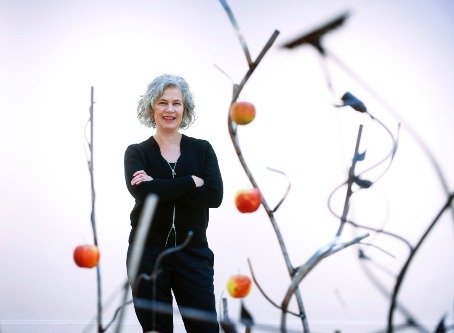
Painting, writing, making theatre productions — not the first activities that spring to mind when you think of academic research. At the University of Groningen, it is nonetheless possible. What are these artistic research studies about and what role does art play in them? Read more
Humour facilitates environmental advocacy
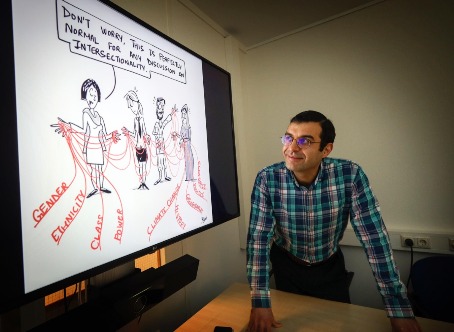
Floods, droughts, wildfires, and food shortages: a lot of communication about the environment carries apocalyptic messages. Constant fear about climate change can cause people to become numb and oblivious, or lapse into eco-anxiety. However, humour and satire, can help keep environmental communication positive and encourage eco awareness, argues UG researcher Massih Zekavat. Read more
Spirituality for better (mental) health
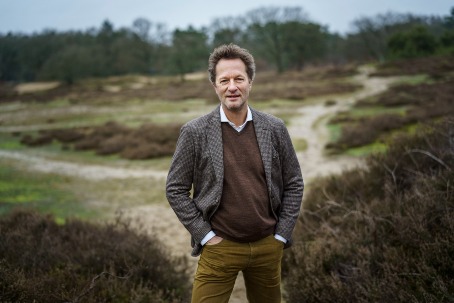
Almost daily, you can read about problems in mental healthcare. Costs are skyrocketing and there are long waiting lists due to capacity shortages, not to mention the ageing population and overworked staff. In other words, the system needs to change. Brand-new professor and psychiatrist Rogier Hoenders emphasizes the important role of spirituality and a healthy lifestyle in this context. Read more
Building top-notch telescopes to look into our past
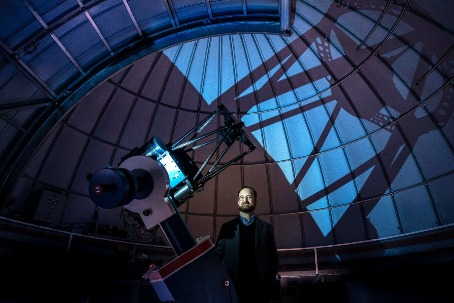
UG professor Scott Trager is developing new methods to unravel the evolution of stars in the Milky Way – and of galaxies far away. ‘There is a sense of wonder in looking out at the universe and thinking: how did this come to be? How does it all work?’ Read more
More news
-
15 September 2025
Successful visit to the UG by Rector of Institut Teknologi Bandung
